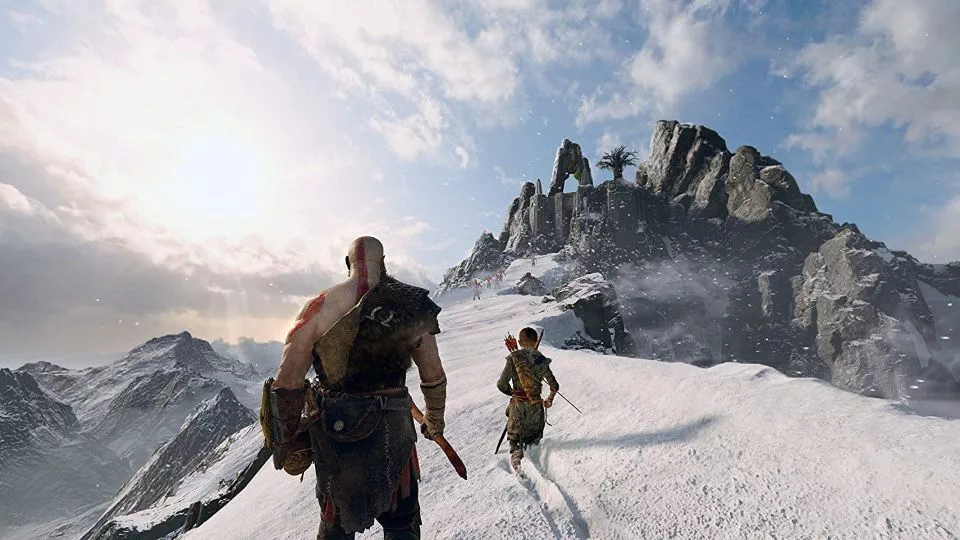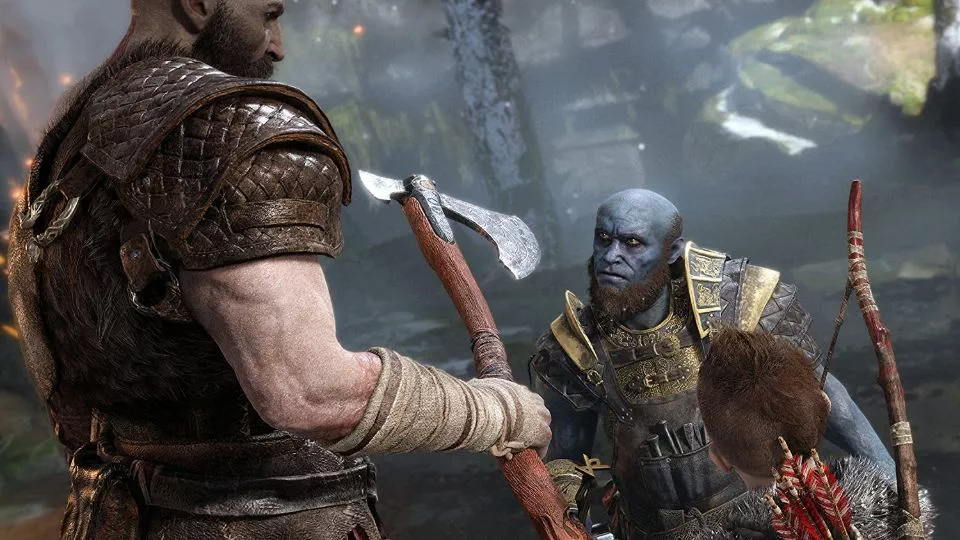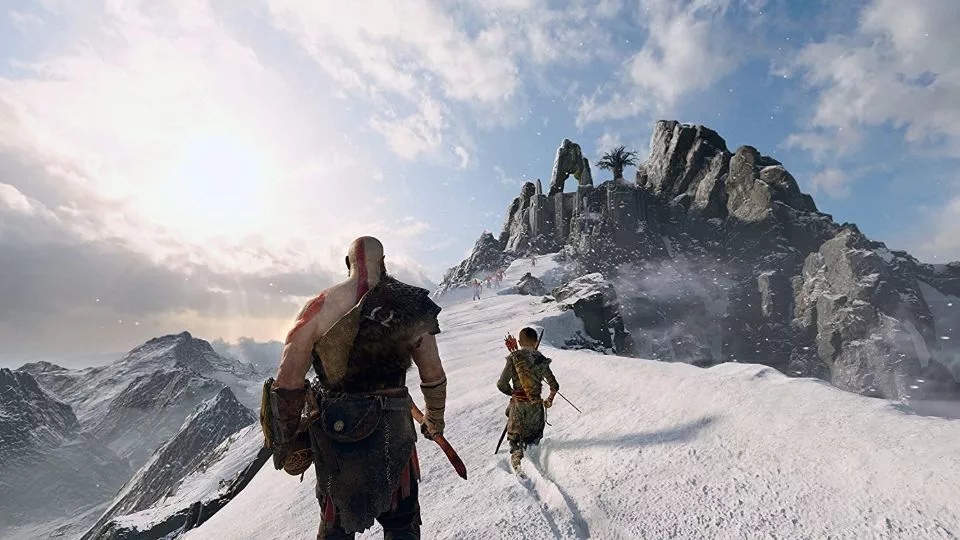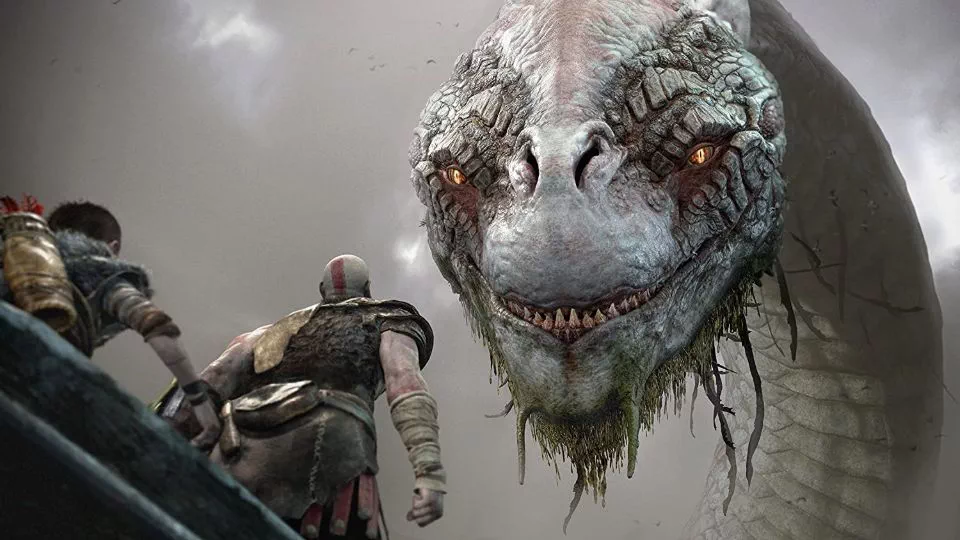The Witcher 3: Wild Hunt -...
Introduction The Witcher 3: Wild Hunt is an...
By Adonis Monahan2548

1

The latest God of War game, released in 2018, received a huge number of awards, and as a small-time player of the previous installment, God of War III, I wasn’t exactly sure what all the hype was about.
Sure, God of War III was a great game and I’d really enjoyed my time playing through the story and watching Kratos hack and slash his way through vast mounds of enemies as he raged at all the gods of Olympus. However, it was only when I got my hands on a copy of God of War, that I figured out what exactly all the hype is about.
It dawns on you slowly, over a couple of days of exploring the different worlds available to you and slowly but surely playing through the main storyline. God of War is a masterpiece of storytelling.
In this installment, the first in a new trilogy of God of War games, the main character, an unnamed, beardless man with immense strength whom we later learn is called Kratos, travels with his son Atreus to scatter Atreus’ mother’s ashes at the top of the tallest mountain in the world.
However, their journey is full of peril, as monsters of all shapes and sizes seek to halt their ascent, and even god-like beings come after Kratos, looking to kill him and capture his son.
Story and Lore
God of War takes place in a pretty standard, open-world RPG map, but since the game is pretty linearized, I never felt like exploring too much. There are a several side-quests and there’s lots of loot to be found in the different realms that are open to Kratos and Atreus (his son) for exploration, so players that do like exploration shouldn’t feel too limited by the game, but, honestly, the main storyline was just so gripping that I only finished the sidequests because I felt that I needed to level up my equipment to better tackle the challenges of the story.
Throughout the beginning of the story, it’s clear that Atreus and Kratos had never had the best of relationships, with Kratos mostly being absent from Atreus’ upbringing, and with Atreus’ mother dead and her house no longer safe (what with an invasion of monsters and gods), Kratos and Atreus are forced to travel together, despite Kratos not feeling that Atreus is ready for such a journey.
Kratos is also an incredibly hard character, and although never directly hurting Atreus, he never openly admits to caring for him and speaks to him harshly. Their relationship is a wonder to explore, as the different events of the story expose the facets of both characters’ personalities, reactions to external threats and possible allies, and even opinions on moral principles and ideologies.
The greatest element of God of War’s story, however, was watching both characters grow. Kratos, slowly, but surely warming up to his son and becoming comfortable around him, Atreus, learning from his father how to live and hunt. It’s the heartwarming story of watching a father and son face challenges together and become better people.
All of which on the backdrop of an incredible fantasy adventure! Although the game developers did a masterful job of the character development and conveying the different aspects of a story just as much about its characters as it is about its destination, so did the developers create an incredibly immersive fantasy world for the story to take place in and through.
The game’s lore is largely based on Norse mythology, as opposed to the previous games’ basis in Greek mythology, but the Norse fantasy elements maintain just the same amount of mystery or better than the previous games.
The monsters, enemies, characters, and even magics that Kratos and Atreus encounter are unique and interesting, with incredibly detailed designs and immersive mechanics making interacting with them both fun and arousing of curiosity, raising just as many questions as answering with every new revelation of character or monster identity.
 https://revyou.com/uploads/thumbnail-960/159156297501291RVljXuCAL._SL1500_.webp
God of War 4
https://revyou.com/uploads/thumbnail-960/159156297501291RVljXuCAL._SL1500_.webp
God of War 4 https://revyou.com/uploads/thumbnail-960/159156297501391YT3li9rgL._SL1500_.webp
God of War 4
https://revyou.com/uploads/thumbnail-960/159156297501391YT3li9rgL._SL1500_.webp
God of War 4 https://revyou.com/uploads/thumbnail-960/1591562975014919wKrPaUXL._SL1500_.webp
God of War 4
https://revyou.com/uploads/thumbnail-960/1591562975014919wKrPaUXL._SL1500_.webp
God of War 4
Gameplay
If anyone were to ask me what area of God of War III really made it for me, I would have had to say its combat system. The new God of War’s combat system is as far removed from the old one as could be expected, but it is superior in almost every way.
Kratos fights with a magical war ax, the Leviathan Axe, which can also be thrown in a variety of unique combos and attacks, but he can also fight bare handed, often punching and brutalizing enemies while barehanded or using his retractable shield.
Elements like the Rage of Sparta still remain from previous games, but Kratos’ signature chained blades are gone. At first, I was a bit disappointed to see the blades removed, they did make for an incredible experience slicing up enemies and slinging them across the arena, but the Leviathan Axe quickly overtook them in terms of versatility and fun.
The Axe is unique and powerful to play with, forgoing the finesse required of a traditional blade for the power that only an ax could display, all with a touch of ice magic to fit the theme of Norse mythology.
Atreus fights too, using a bow his mother had made him, and Kratos can command Atreus to fill his enemies with holes, distracting or slaying them, and even occasionally physically attacking some enemies as Atreus gains confidence over the course of the story.
The game has a huge variety of elements besides combat that make it unique, including collectibles and different magic bowstrings for Atreus to use, as well as a large-scale crafting system.
Kratos and Atreus can bring rare materials they find while adventuring to the skilled blacksmith brothers Brok and Sindri, who can upgrade Kratos and Atreus’ weapons and armor or sell them a large host of talismans and runes that can change Kratos’ playstyle and give his ax new magical abilities that make the combat more flexible.
Art and Sound
There is art out there that can beat God of War’s, but there isn’t much of it. Suffice to say that God of War does a perfect job of explaining and bringing to life the otherwise crazy mythological concepts and monsters that the developers include, oftentimes creating their own, personal adaptations that make them unique to God of War.
The art enhances, the experience of playing God of War, meticulous enough as it is to show you the details in a giant, world circling serpent’s moss tentacles, and the hairs on Kratos’s beard as he yells at Atreus to stop slacking off.
The sound design is also commendable, being snappy and responsive to the different actions and combat styles the player can perform. Not especially unique, and I can’t quite remember if there was any significant musical involvement, although that’s probably a byproduct of my intense involvement in the story.
Conclusion
There’s a reason why God of War won Game of the Year from so many award shows and magazines; there’s almost nothing negative that I can really say about it. The worst thing I could say was that it fails at being a truly open-world, sandbox style game, but that’s hardly something to complain about when the cause is a storyline so immersive it makes it impossible to leave the Path without feeling this nervous feeling as though you had to return to the journey.
God of War is a video game I feel comfortable calling a masterpiece, and I look forward to its upcoming sequels and what they have in store for us.
Updated 4 years ago